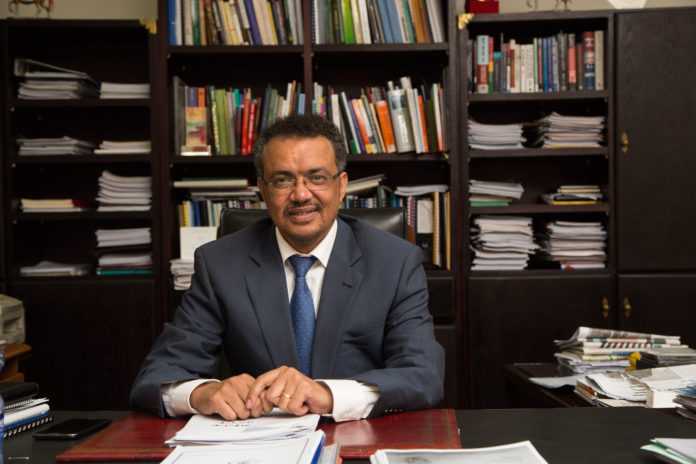Dr Tedros Adhanom Ghebreyesus, WHO Director-General for the past year, will open the 71st World Health Assembly in Geneva next week, where he will present an ambitious program for change designed to save 29 million lives by 2023.
Health ministers and other delegates from WHO's 194 Member States will meet to discuss a range of issues, including the Thirteenth General Program of Work - WHO's five-year strategic plan to help countries achieve the health-related targets of the Sustainable Development Goals (SDGs).
"This Health Assembly will be historic. WHO's 70th anniversary marks seven decades of advances in public health that have increased global life expectancy by 25 years, saved the lives of millions of children, and made huge strides in the eradication of deadly diseases such as smallpox and, soon, polio," says Dr. Tedros.
"But the latest edition of World Health Statistics, published yesterday, shows that much remains to be done. Too many people are still dying from preventable diseases, too many people are falling into poverty because they have to pay for healthcare out of their own pocket, and too many people are unable to benefit from the healthcare services they need. This is unacceptable," he added.
Next week's Health Assembly opens against the backdrop of a new outbreak of Ebola virus disease in Central Africa, a stark reminder that we are never immune to global health risks, and that fragile health systems in any country pose a risk to the rest of the world.
WHO's overall work program, which is designed to address these challenges and accelerate progress towards the SDGs, and which was developed following 12 months of intense debate with countries, experts and partners, focuses on targets under the "triple billion", namely:
- 1 billion more people benefiting from universal health coverage ;
- 1 billion more people better protected against health emergencies;
- We are working differently to make our vision of a world where health is a right for all a reality," says Dr Tedros. This year's World Health Assembly will also address other topics, including WHO action in health emergencies, polio, physical activity, vaccines, the global burden of snakebite mortality and morbidity, and rheumatic heart disease.
The 2018 Global Health Statistics, in which the WHO provides an overview of the global health situation, show that in some areas remarkable progress towards achieving the SDGs has been made, while in other areas there is stagnation and the progress made may well be challenged. The latest available data show that:
- Today, less than half the world's population has access to all the health services they need;
- in 2010, nearly 100 million people were plunged into extreme poverty because they had to pay for healthcare services out of their own pocket;
- every year, 13 million people - most of them living in low- and middle-income countries - die before the age of 70 from cardiovascular disease, chronic respiratory ailments, diabetes or cancer;
- in 2016, 15,000 children a day died before their fifth birthday.


